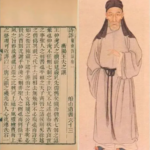Gustavo Martins Piccolo, PhD in Special Education, Professor at the Department of Human Sciences at the University of Araraquara, UNIARA, Araraquara, SP, Brazil.
 The article Why should we abandon the idea of inclusive education, published in the jornal Education & Society (vol. 44), promotes a critical review of the concept of inclusion, uncritically incorporated as the mermaid song of modern societies, but whose genesis history holds antitheses linked to assimilationist assumptions, many of which leading to exclusionary processes for people with disabilities. The text directly challenges the idea that societies, as a rule, moved from exclusion to inclusion, denouncing the fragile elements of this discourse that are not proven in practice.
The article Why should we abandon the idea of inclusive education, published in the jornal Education & Society (vol. 44), promotes a critical review of the concept of inclusion, uncritically incorporated as the mermaid song of modern societies, but whose genesis history holds antitheses linked to assimilationist assumptions, many of which leading to exclusionary processes for people with disabilities. The text directly challenges the idea that societies, as a rule, moved from exclusion to inclusion, denouncing the fragile elements of this discourse that are not proven in practice.
The study is based on extensive historical research on the disability category in philosophical, sociological, anthropological and religious texts. The research was carried out by two years and aimed to challenge assumptions often taken as truths uncontested, but which present noticeable contradictions in the field of practice, the idea of inclusion is certainly one of these concepts when announced by modernity as cornerstone in the forging of a plural society and, concomitantly, display a series of relationships that do not contest the current state of affairs founded on a capacitist logic.
In the everyday universe and in regular schools, we have noticed that the much publicized inclusion lacks significant advances in practice, since we have witnessed several subjects who are allocated in the most varied social geographies, however, they are not part of the complex of relationships characteristic of that universe.

Image: Freepik.
In this sense, the idea of accessibility presents several gains, including historical ones, since it presupposes as a starting point the transformation of structures and relationships in order to promote a participation that seeks to be parity in all dimensions and which, in the case of schools, aims ultimately at the appropriation two by all subjects of knowledge historically accumulated by humanity and the enrichment of each one due to the interfering nature of this relationship on the development human. Based on this objectification, we hope to fight for the configuration of spaces and relationships in which the forms and functions of bodies do not conflict with the forms of the world.
The article will stimulate new ways of thinking and analyzing the idea of inclusion, as it points out internal contradictions and contests its thoughtless use from a designed by modernity itself to explain itself. Thus, a direct effect of text translates into the visualization of this concept as attending a logical hand necessarily libertarian as was ordinarily supposed. A good example, in this sense, can be found in the criticism expressed by Bauman (2001) to the normalization processes developed within capitalism which resulted in the erasure of diferences as deviations.
To weave this analysis, the author makes use of an analogy created originally by Lévi-Strauss (2001) through the use of the terms anthropoemic and anthropophagic, understanding that, in the act of normalization, anthropoemic strategies aimed at the exile of those defined as others, while in the anthropophagic scheme he intuited the total suspension of this otherness, taken as of lesser value segregate and subsequently, to recreate the image intended by an abstract concept of norm constitute poles through which modernity configured its political response to disability, qualifying the aforementioned experience in terms of invalidation and opposition to desired body.
Moreover, the theses opened in the article allow thinking about the relationship between disability and society in an original and antithetical way to the scalar principle that took as truth that societies moved from exclusion to inclusion. With this historical and situated analysis, we hope to contribute so that one can visualize in the experience of disability a complex culture that expands the possibilities of human objectification; in view of this, it is not enough just to accept people with disabilities in the most varied social geographies; it is necessary to transform these spaces from these corporalities.
Below, watch the video of Gustavo Martins Piccolo (in Portuguese) expanding the discussion and point of view on inclusive education.
References
BAUMAN, Z. Modernidade líquida. Rio de Janeiro: Zahar, 2001.
LÉVI-STRAUSS, C. Tristes trópicos. Lisboa: Ed. 70; São Paulo: Martins Fontes, 1981.
To read the article, access
PICCOLO, G.M. Why we should abandon the idea of inclusive education. Educ. Soc. [online]. 2023, vol. 44, e260386 [viewed 25 May 2023]. https://doi.org/10.1590/ES.260386. Available from: https://www.scielo.br/j/es/a/ywPj7Z3kdhmL5PLtQhN63hv/abstract/?lang=en
External links
Educação & Sociedade – ES: www.scielo.br/es
Educação & Sociedade – Social media: Facebook | Twitter | LinkedIn
Universidade de Araraquara (Uniara) – Facebook: https://www.facebook.com/Uniara
Como citar este post [ISO 690/2010]:


















Recent Comments